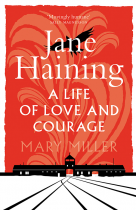Maggie Craig's Blog: Maggie Craig Scottish Writer, page 4
March 31, 2020
Launch of One Week in April: The Scottish Radical Rising of 1820
Hooray! After nearly two years of research, visiting the relevant sites and writing, One Week in April: The Scottish Radical Rising of 1820 will be launched tomorrow. This will be a virtual launch and everyone’s invited.
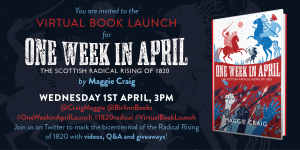
Wednesday 1st April at 3 o’clock on Twitter. There will also be a link on Facebook (Birlinn Books) to the video on You Tube which I’ve made about the book and the writing of it.
There will be cake. (I’ll post a photo.)
February 15, 2020
Dance to the Storm
Dance to the Storm will be published as a Kindle ebook this Thursday, 20th February, paperback and audiobook publication to follow. You can pre-order here. You don’t have to have read Gathering Storm first but if you would like to, the ebook version is on at 99p for a limited period to celebrate publication of the further adventures of Captain Robert Catto and Christian Rankeillor. You can buy it here. These links are for Amazon UK but should re-direct readers in other countries to the relevant site for you.
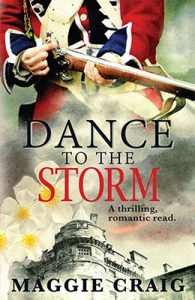 Cover design by Cathy Helms of Avalon Graphics
Cover design by Cathy Helms of Avalon Graphics
January 11, 2020
Happy Old New Year
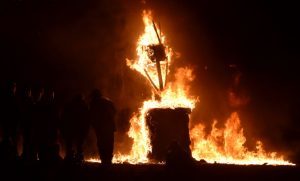 Burning of the Clavie in Burghead in Moray.
Burning of the Clavie in Burghead in Moray.In Burghead in Moray in the north east of Scotland, a fire festival takes place on 11th January every year to celebrate Old New Year. Back in the mid 1750s, there was a discrepancy of 11 days between two calendars, the older Julian calendar and the more modern Gregorian calendar. Most European countries changed over to the latter quite early on. Protestant countries were, however, reluctant to do so, as the new calendar had been commissioned by Pope Gregory from Jesuit scholars.
In 1600, Jamie the Saxt, seeing the benefits of Scotland operating on the same dating system as her European trading partners, took his Protestant country onto the new calendar. At the Union of the Crowns in 1603 and the Union of the Parliaments in 1707, it would appear that Scotland was obliged to go back to what was called Old Style dating, although probably operating on a mixture of the two calendars. Letters written in the first three months of the year were dated for both, e.g. 20th February 1744/45.
The difference in the two calendars is why Bonnie Prince Charlie seems to have two birthdays, one on 20th December and the other on 31st December and why older histories of this period will often specify Old Style (OS) or New Style (NS) dating. Until a generation ago, some people went out to Culloden battlefield not on 16th April but on 27th April.
England bowed to the inevitable in 1752, when people went to bed on 2nd September and got up on 14 September. Deeply distressed at thus being forcibly brought into line with Europe, noisy protests culminated in riots with cries of ‘Give us back our eleven days!’
The idea that Scotland and England were for many years operating in different time zones might explain a lot!
December 30, 2019
Paisley Book Festival February 2020
I’m delighted to be part of the launch event of the inaugural Paisley Book Festival. I’ll be speaking at the Paisley Arts Centre in the Abbey Close, Paisley on Thursday 20th February between 7 and 9 pm. Tickets and more information here.
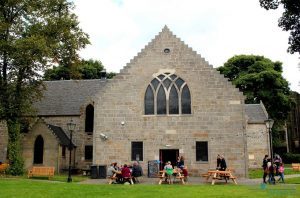 Paisley Arts Centre
Paisley Arts CentreThe theme of the festival is Radical Voices and Rebel Stories, so I’ll be talking about my books on the Jacobite rebels of 1745, the Red Clydesiders of the early 20th century and the Paisley Radicals of the early 19th century, who feature in my next non-fiction book, One Week in April: The Scottish Radical Rising of 1820. This will be published in April 2020.
The Paisley Book Festival runs for 20-29 February 2020 and you can find the whole programme here.

November 28, 2019
One Week in April
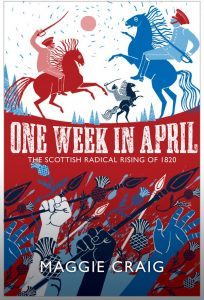
Delighted to announce that my next non-fiction book is One Week in April: The Scottish Radical Rising of 1820. This will be published on 9th April 2020, marking the 200th anniversary of the events of one turbulent week in Scotland’s history and their historical context. To read more about the book or to pre-order a copy, click here.
July 30, 2019
Skye August 2019
Really looking forward to giving a talk on the magical Isle of Skye on Thursday 17th August in a stunning venue. I’ll be speaking about the interesting times of 1745-6 and the men and women involved in those. The wonderful and talented Barbara Henderson and I are presenting separate events and then coming together for a Q & A afterwards. All details here.

May 21, 2019
Port Glasgow Library

On Thursday 30th May from 2-3 pm, I’ll be at Port Glasgow Library, event title ‘A Chat with Maggie Craig.’
Port Glasgow Library, Fore Street, Port Glasgow. PA14 5EQ
For further information phone 01475 712330.
May 20, 2019
Author Visit to Airyhall Library in Aberdeen
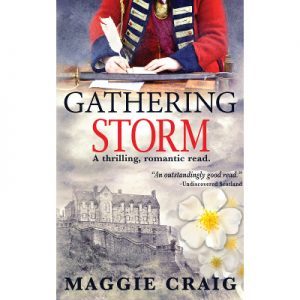
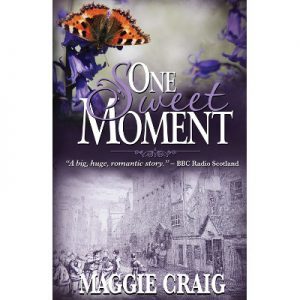
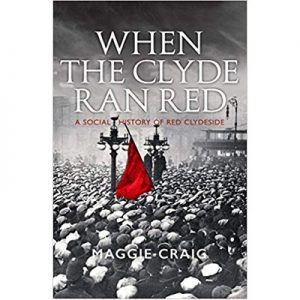
On Saturday 25th May from 2.15-3.15 I’ll be speaking about my books at Airyhall Library, Springfield Road, Aberdeen. AB15 7RF. For more information, phone the library on 01224 310536 or email them at AiryhallLibrary@aberdeencity.gov.uk
May 19, 2019
The Easternmost House by Juliet Blaxland
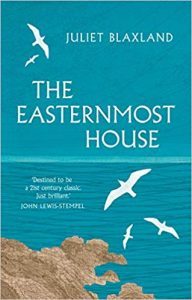
This is a beautiful book, eloquent and evocative. Reading it felt like a meditation. Julie Blaxland lives with her husband Giles and Chuffy the brindle greyhound in the house of the title on a rapidly eroding part of the Suffolk coastline.
Here is how she puts it: ‘I live in a house on a windblown clifftop at the easternmost edge of what used to be the easternmost parish of England. The church fell into the sea in 1666, and this house – itself called the Easternmost House – has probably only three summers left before it too is lost to coastal erosion.’
Yet this book is a celebration of that house and everything around it, the sea, the cliffs, the beach, the farms, the farm animals, the wildflowers, the wildlife and the people. The author writes as though she is talking directly to you and she has some wonderfully descriptive turns of phrase. Lyrical, poignant and witty, this book is a moving testament to a still enormously vibrant but vanishing time, place and way of life. It’s also a lovely little object in its own right, well-designed and with an elegant and striking cover.
The Easternmost House is published by Sandstone Press.
April 21, 2019
Jane Haining – ‘The Scot who died in Auschwitz’
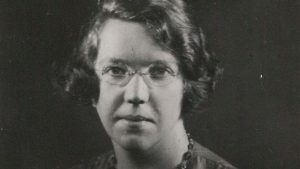 Jane Haining/Courtesy of the Church of Scotland
Jane Haining/Courtesy of the Church of ScotlandJane Haining was born in the village of Dunscore in Dumfriesshire in 1897 and died in Auschwitz in 1944, at the age of 47. In 1932, as a Church of Scotland missionary, she had felt called to work as matron to Jewish girls at the Church of Scotland mission and school in Budapest. A committed, compassionate and practical Christian, she continued to care for them even as the storm clouds gathered and broke over Europe. She could have left Hungary, indeed the Kirk tried to insist that she did. Jane, known as Jean to her friends and family, refused, saying: “If these children need me in days of sunshine, how much more do they need me in days of darkness?”
She saved many Hungarian Jews, adults and children, and got them out of the country under the noses of the Nazis. She herself was not so lucky, denounced and sent to Auschwitz where she died. Those pages are hard to read, not because they are graphic but because they are heartbreakingly sad and dignified. This biography of her is meticulously researched, beautifully written and deeply moving, setting Jane in the context of her times.
Mary Miller shows us Jane not as a saint but as a living, breathing, often laughing person at the different stages of her life, as a girl in the countryside, a schoolgirl in Dumfries and a trusted right hand woman in the offices of J & P Coats in Paisley, where she worked for several years before she went to Budapest.
Jane Haining: A Life of Love and Courage by Mary Miller is a fine biography about a fine and brave woman. She inspired many of her pupils, one of whom described her as “a shining light.”
Jane Haining is remembered now at home in Scotland, in Budapest and by Yad Vashem, the Holocaust Remembrance Centre, as “Righteous among the Nations.”
